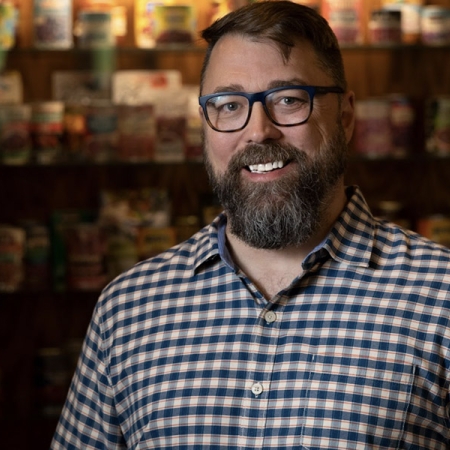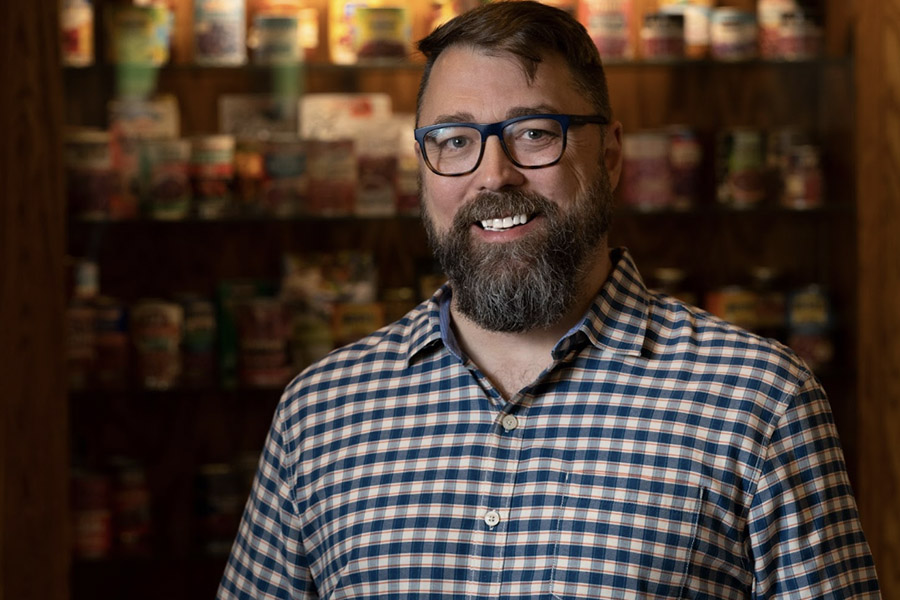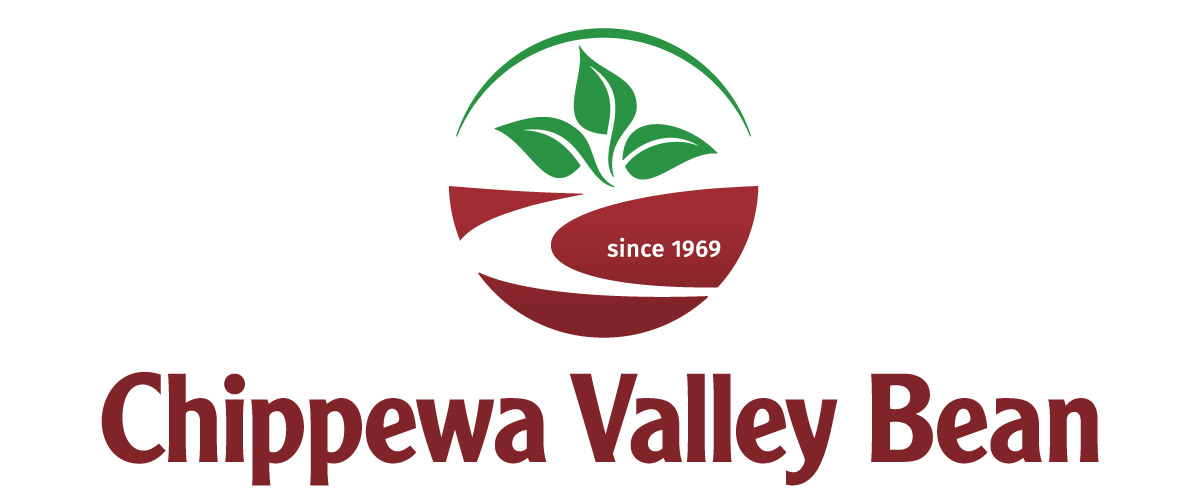January 19, 2023
Charles Wachsmuth, vice-president of kidney bean giant Chippewa Valley Bean, chats with Luke Wilkinson about new markets, crippling steel tariffs, and some creative solutions to the shipping crisis.



I grew up in the kidney bean world - our family started growing kidney beans in 1969, along with some navy beans, working in a close partnership with Condon Bush, one of the main players in the Bush Brothers edible bean world.
Throughout high school and university I worked for the family business and got experience in crop management all the way up to harvest and processing, then when I finished university I went out and did my own thing, starting a consultancy operation working in humanitarian food and agricultural development, predominantly in the global South.
I came back to Chippewa Valley Bean around 2010-11 as a marketing specialist, focusing on new market development and moving our lower grade product. Since then, I’ve transitioned through the ranks and now, as vice-president, I'm very proud to lead the company's sustainability and social responsibility arm.
My major focus is opening up markets in Asia, though we still serve domestic markets and markets in the EU.
I also do the vast majority of our marketing and advertising; that side of things is interesting – we’re not a consumer-facing company so we don't advertise to consumers. It’s more advertising towards our grower base, making sure that in the pulse industry of the upper midwest – Wisconsin, Minnesota, North Dakota – everybody knows who we are and what we offer to the grower base.

Sure, Chippewa Valley Bean is the largest processor exporter of kidney beans in the world – we work with over a hundred family farms across the upper midwest. We contract beans with the growers, then bring the beans to our facility where we have a full cleaning and processing line, so everything we sell goes out in ‘cleaned but raw’ state.
We predominantly sell those beans to canning customers, but we also sell to ingredient manufacturers and beans to go into the dry packs that you'll see in grocery stores or even in open markets in countries like Pakistan.
The way to think about us is that we are the center link in the chain: without growers or buyers there's no reason for us to be here. For us, the purpose of Chippewa Valley Bean is to provide a stable marketplace both for growers, who want to be able to sell their product profitably, and also for the canners who buy it.
All of them! In the EU our single largest customer would be Italy but we ship a fair amount into France, Germany, and the UK. We do business with Poland, Switzerland and the Netherlands and we have strong markets in the UAE and Pakistan and Panama and Colombia in the Americas.
Our largest market in Asia is currently Japan but we just started our first direct sales to South Korea this year. I'll be going to Vietnam and Thailand in the spring.
I believe it’s opened up due to the very tight adzuki bean market. Since I joined Chippewa Valley Bean I’ve worked hard to figure out what to do with all our products – not just premium quality canning beans, but the normal and packaging quality beans too.
If small red beans are tight in Sourh Korea, why can't you use an off-grade kidney bean to balance out the blend? If you need a red bean for a confectionery product where you're not seeing the shape of the bean, then you can get away with it. We’ve worked hard to develop these markets and to be a part of them.
I think you can boil it down to a few things: first were the aluminum and steel tariffs back in 2018, where I think the price of steel jumped over 20%. In response to those tariffs, the EU levels a 25% duty on edible beans entering into the European Union so that overnight we were renegotiating contracts and we let them do that because how do you compete with a 25% price bump overnight? It meant that our worldwide competitors could feasibly increase their price by 24.5% and still come on the market at a lower price than we could.
This allowed Canadian farmers to realize more value and allowed the Argentina market to blossom. We had to work closely with our growers to try to overcome this because, once you lose a market, it takes forever to get it back.
The next thing is logistics and shipping. It's been a worldwide issue and frankly we're still dealing with it now. A lack of containers and the throttling of rail services in Montréal – our largest port.
We had to be creative – as a company we privately leased 220 containers and charted a container vessel out of the port of Duluth! There were no other choices as we just had to ship it.
In addition to a lack of containers, we almost have a two month lead time to get boxcars to our customers as well. We're working really hard to figure out solutions, whether it's shipping out a great lake port or using ore haulers that go from the port of Duluth-Superior. The ore hauler company we are working with is actually putting pegs on those ore ships so that we can get 40 containers on there to go down the Cleveland and then onto a regular boat that ships into Antwerp.
For 30 years we could get containers from Minneapolis – we could get them to Montréal and life was easy. Now that system is broken. So how do we solve these problems? It's been a struggle and a very expensive education but we're figuring it out.
“A lot of it still hinges on that logistics issue. Can we normalize shipping again?”
Everybody's paying. We are paying for more shipping. We are paying more for our raw goods. Our growers are paying more for their crop input products all year-long.
To talk about inflationary prices, look at the Russian invasion of Ukraine. Our largest customer in Europe is paying four times more for natural gas this year than they did last year, and we’re trying to juggle and balance all this with a strong dollar working against us in export markets.
We set up our system so that we incentivise growers to use special combine equipment and we offer a bonus on low cracked seed coat levels. We also bring all beans onto our property immediately after harvest, which means we are the only people handling them and we have the experience and expertise to do it properly.
Our lines are set up to be as gentle as possible, because with a darker kidney bean, for example, its value really comes from that intact mahogany skin, so when you open the can you shouldn't see any of the white of the bean. We’re really focused on achieving that.
When we are running products, we sample every five tons so that we know what the quality is. At the start of business with a new customer we ask them what their product specifications are.
Normally they’re pretty generalized so we send them one of our seven in-house categories for quality and say to them, "will this one work?" Once they say yes, from then on they will always get that quality spec, unless it's a really tough year on the growing side, in which case we'll speak to the customer and ask them for an allowance.
When we started growing kidney beans in ‘69, my grandfather didn't believe we could compete with the corn and soy growing areas in what we call the corn belt in the US. The land was just more conducive to corn and soy. So we looked for something else that could bring value back. We focused on kidney beans because we knew we could do the quality that nobody else was offering and it just kind of steamrolled from there.
The cost of steel still hasn't hasn’t completely gone down from the tariff situation, and currently, the cost of money and shipping issues means that while we had planned to install another processing line by this point, all these factors together have pushed it out. We are looking to expand. We don't know exactly what yet, whether that's black beans or navy beans. Many of the growers that we deal with are actually producing beans for their other houses and we would like to bring those other beans into our orbit – it's just that the time isn’t right.
We do trade in other classes, as many of our customers want to be able to come to Chippewa Valley Bean and say, "I need navy beans, I need great northerns, I need kidney beans." So we developed multiple relationships worldwide to be able to offer them a full basket of products.
“Chippewa Valley Bean has been around for 50 years, and I see no reason why another 50 is out of the question.”
A lot of it still hinges on that logistics issue. Can we normalize shipping again? It’s affecting all pulses from the United States and the movement of goods worldwide in general. The strong dollar is really going to affect us, and the cost of crop inputs for farmers – prices of fertilizers and chemicals and things like that.
As we look at pulses as well, we're going to be greatly affected by commodity pricing – whether corn, soy, or wheat. There's talk we've heard in Argentina that if there's rain at the right time it will see a lot of their edible bean acres going to soy this year. So we'll see what that means and what their government will do with tariffs.
I think we are looking at a year of unknowns but I can say for sure, at least on kidney beans, that the market is going to be tight and that we’ll be lucky to have as many acres in 2023 as we had in 2022 - and in 2022 we were already 30% to 50% down on 2021. It's going to be a challenge to stabilize the market because, honestly, extreme shifts in prices and supply benefit nobody – long-term, they're disruptive to the market.
I feel like we might be reaching the peak of inflation and, once logistics and the dollar normalize, it will allow us to put a new line in. I'm also excited about our carbon audit. I truly believe that working on the path of sustainability can help us to continue to be the first supplier of choice when you need kidney beans.
I see great potential in Asia, which will start slow but we see the market in Japan grow year-on-year. I think we will see the same in other parts of Asia.
I'm an optimist and I see what we're doing on logistics, on the work with growers, on sustainability and it's clear that we're innovative and moving forward. Chippewa Valley Bean has been around for 50 years, and I see no reason why another 50 is out of the question.
Disclaimer: The opinions or views expressed in this publication are those of the authors or quoted persons. They do not purport to reflect the opinions or views of the Global Pulse Confederation or its members.